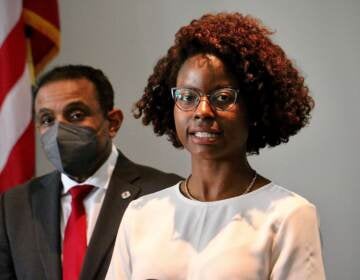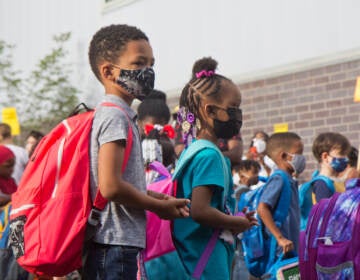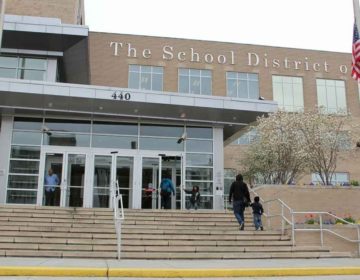Coronavirus fallout could devastate Philly schools, cause billion-dollar deficit
In a grim and eye-opening budget meeting, district officials laid out the math facing Philly schools as COVID-19 ravages the nation’s economy.
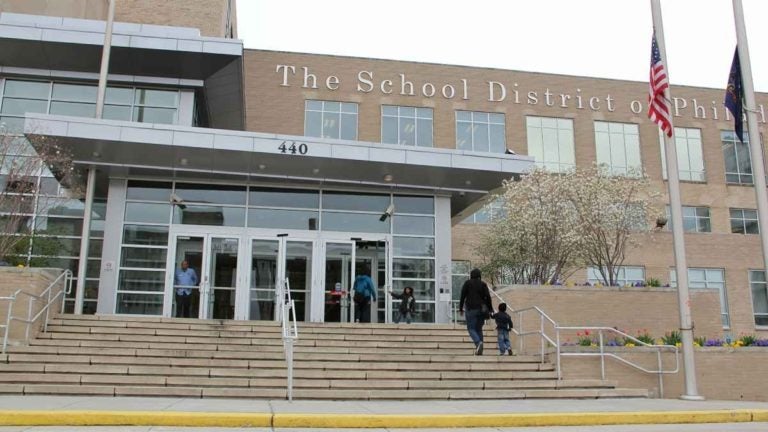
School District of Philadelphia. (Emma Lee/WHYY)
In roughly a month, the economic fallout from the coronavirus pandemic has flipped the economic fortunes of the School District of Philadelphia.
The extent of the fiscal damage was laid out in a budget meeting Thursday, where district officials projected an immediate, $64 million hit to district revenues and a five-year deficit projection of $1 billion.
In March, for a fleeting moment, the district unfurled a budget projection that was unusually sunny. Revenues and expenses were predicted to grow at about the same rate, and five years down the road officials thought the 130,000-student district would still have about $160 million in the bank.
That was before COVID-19 wreaked havoc on the national economy and government budgets. Now, the district thinks it will be $1 billion in the red by fiscal year 2024-25.
That projection does not include the potential implications of new contracts for the district’s two largest labor unions, both of which have deals that expire this year.
There is still much to be decided between now and 2024-25, including the status of federal aid, the budget decisions of state lawmakers, and the elasticity of city revenues that depend on local economic activity.
But the grim tone of Thursday’s meeting suggested that officials have a mammoth challenge ahead, and that they’re relying on political pressure to stave off the worst cuts.
“If we act now, I believe we can avoid some of the worst possible scenarios and we’ll be asking for everyone to stand with us in this advocacy,” said Joyce Wilkerson, the Board of Education’s president.
The district was in financial straits for much of the early 2010s — and on a steady, but painful, recovery in the years since.
Now, it appears Pennsylvania’s largest school district will again need to pull itself out of a hole.
“The economic recession resulting from the COVID-19 pandemic…has the potential to erase all of the progress we have made over the last eight years, particularly financially,” said Superintendent William Hite.
In the immediate term, there is not a cash-flow issue.
From now until the end of the fiscal year — June 30th — the district expects to lose about $64 million it would have collected in local revenue. Most of that money would have come through business and liquor taxes that have vanished under state-mandated closures.
The district will also save about $51 million this school year because buildings have been closed, canceling out utility costs, transportation, and other routine expenses.
Using reserve money, the district will cover the gap.
The structural problems start next year.
The district is budgeting for a major drop in the amount of money it receives from the state government.
Local leaders are also no longer expecting a change in the way the state distributes money to charter schools — one that Gov. Tom Wolf had been stumping for prior to the coronavirus outbreak and one that would have delivered millions in annual savings for the school district.
Right now, the district believes city funding will continue as promised. The calculations for local tax revenue assume that Philadelphia will return to something resembling normal business activity by July 1st.
There are many variables at play. A surge in federal stimulus funding to states could stave off the grimmest projections. Or a second wave of virus-caused lockdowns could send tax collections plunging.
District officials and board members used Thursday’s meeting to urge political action. By lobbying state and federal leaders, they said, Philadelphia’s schools could avoid a financial calamity.
“We’ll be calling on everyone who’s listening and watching this afternoon to stand with us in advocating for legislative action to avoid a repeat of our recent past,” said Wilkerson.
Perhaps there will be strength in the numbers. The last time the school district started down such a daunting fiscal road, it did so alone. Not anymore.
“Unlike what happened seven or eight years ago, this is everybody,” said Uri Monson, the district’s Chief Financial Officer. “This is every district, every city, every state.”
WHYY is your source for fact-based, in-depth journalism and information. As a nonprofit organization, we rely on financial support from readers like you. Please give today.



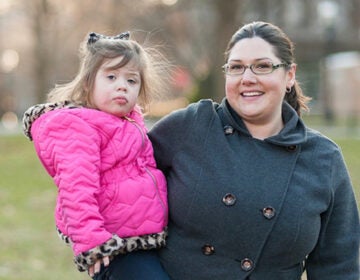
![CoronavirusPandemic_1024x512[1]](https://whyy.org/wp-content/uploads/2020/03/CoronavirusPandemic_1024x5121-300x150.jpg)
